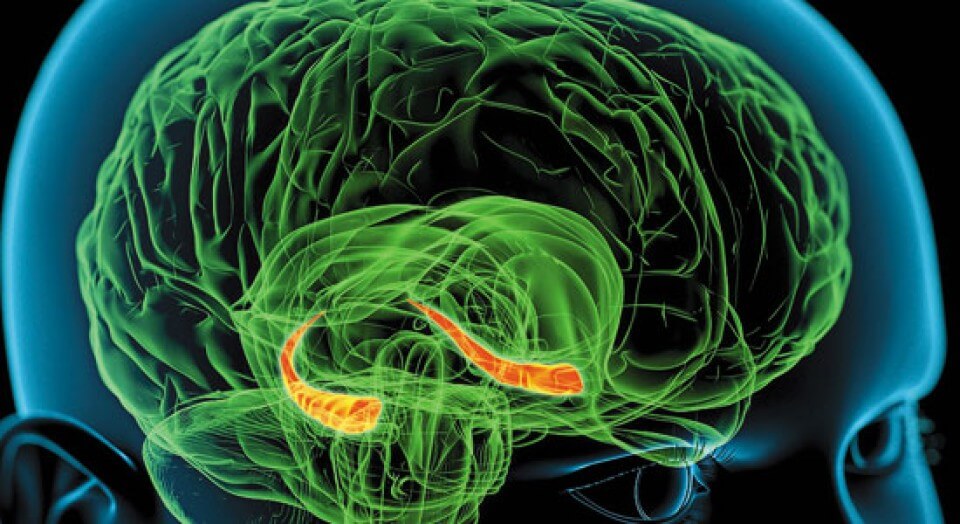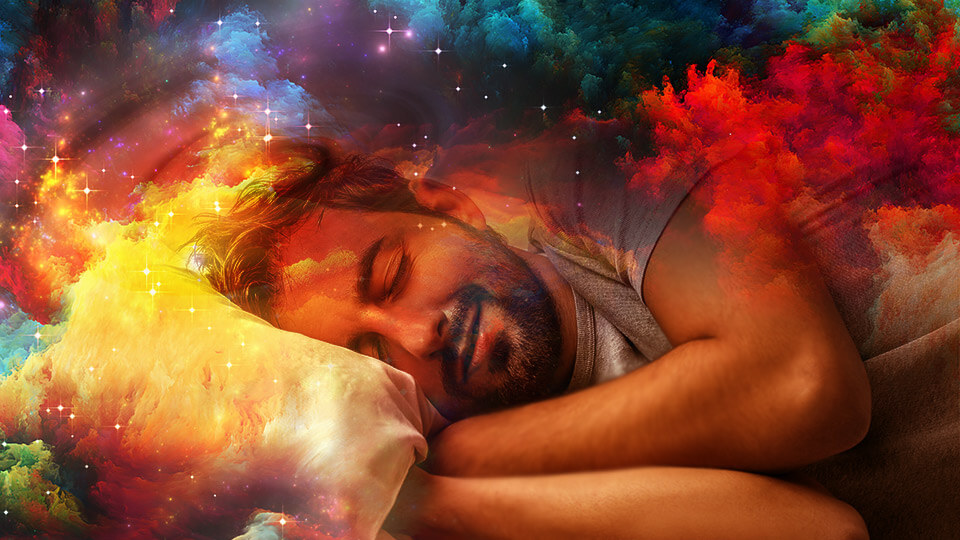Why Do We Remember Some Dreams but Not Others?


Written and verified by the psychologist Valeria Sabater
We spend nearly a third of our lives sleeping. But we don’t always remember what happens in our dreams. We wake up from a strange and fascinating universe that sometimes gives us valuable and meaningful information but we don’t always remember it. Why does that happen? Why do we remember some dreams but not others?
Dali said that the fact that he didn’t understand the meaning of his art didn’t mean it didn’t have any. A lot of the work that Dali, an unforgettable painter, sculptor, engraver, and set designer, created was inspired by his dreams. Dali was a true oneironaut, a specialist at exploring lucid dreams he had during naps.
Unfortunately, the vast majority of the population doesn’t have this ability. The percentage of people who actually remember their dreams is very low. Most people wake up with a sensation or a set of disorganized and meaningless images. This phenomenon may frustrate you, but there are several explanations for it. Let’s look at some of them.

Why do we remember some dreams but not others?
The answer is in the brain. Dream cycles usually last between 90 and 100 minutes. This cycle is divided into different stages. One of those stages is REM (rapid eye movement) sleep. This is when people have the most vivid dreams. The dreams in this stage submerge us into terrifying and fascinating scenarios. Here is where you feel emotions and sensations very acutely. It’s also important to know that the REM sleep stage is the longest and the last. Therefore, it’s common to wake up all of a sudden and only remember the last moments of a dream.
Many neurologists tell us that, outside of the dream stage, the “sleeping brain” has no memory. That is, we’re not programmed to store data during this stage because, apparently, nothing significant happens that’s useful to us. But if this is completely true, why do people remember some dreams?
An answer to this question is offered by a recent study from Monash University in Melbourne, Australia. This theory had already been proposed in 2011 in the journal Neuron after a series of magnetic resonance imaging tests. It seems that the key to all of this is the hippocampus. This structure in the brain is the “culprit” behind us not being able to remember many of the dreams we have each night. Let’s look at the data below.

The hippocampus and the dream world
If you think that the brain “disconnects” completely when you fall asleep, you’re wrong. There’s no complete disconnection. It just goes into sleep mode, so to speak. One of the last parts of the brain to switch from conscious to unconscious is the hippocampus.
This area is responsible for transferring information from short-term memory to long-term memory, among other things. There are people whose hippocampus disconnects later than most, which allows them to remember their dreams. For the rest of us, 90% to be exact, if we don’t remember a dream, it’s because the hippocampus disconnected at a precise moment. It’s the moment where our brain decides to make other things “more important”.
The hippocampus does more than just regulate whether we remember some dreams. One of its essential processes is sifting through information and deciding what’s important to remember and what’s not. It erases certain data and eliminates duplicate information and images seen during the day. These functions keep the long-term memory healthy. The hippocampus is so focused on this task that it will rarely pay attention to whatever you’re dreaming about.

In addition to that, and thanks to an article published in the journal Neuropsychopharmacology, we can see that people who usually remember their dreams not only have a more conscious hippocampus but also show greater activity in the temporoparietal junction. This is the information processing center in the brain.
How can we remember more dreams?
Many of us would like to be able to remember our dreams clearly. We believe that by doing so we might understand things about ourselves that were not so obvious before. Well, you should know that none of the techniques prescribed to achieve this are recommended or 100% effective.
The most recent technique on how to remember our dreams is to set alarms to go off every 30-35 minutes. These sudden awakenings would allow us to remember our dreams, which we should then write down in a notebook. However, this will make you have low-quality dreams and will also deprive you of necessary rest. It’s not recommended.
If we don’t remember some dreams, it’s simply because the brain didn’t consider them important. On the bright side, the dreams that we do remember are always the most important. They contain a greater emotional component. They contain information that can be interpreted in many different ways.
We spend nearly a third of our lives sleeping. But we don’t always remember what happens in our dreams. We wake up from a strange and fascinating universe that sometimes gives us valuable and meaningful information but we don’t always remember it. Why does that happen? Why do we remember some dreams but not others?
Dali said that the fact that he didn’t understand the meaning of his art didn’t mean it didn’t have any. A lot of the work that Dali, an unforgettable painter, sculptor, engraver, and set designer, created was inspired by his dreams. Dali was a true oneironaut, a specialist at exploring lucid dreams he had during naps.
Unfortunately, the vast majority of the population doesn’t have this ability. The percentage of people who actually remember their dreams is very low. Most people wake up with a sensation or a set of disorganized and meaningless images. This phenomenon may frustrate you, but there are several explanations for it. Let’s look at some of them.

Why do we remember some dreams but not others?
The answer is in the brain. Dream cycles usually last between 90 and 100 minutes. This cycle is divided into different stages. One of those stages is REM (rapid eye movement) sleep. This is when people have the most vivid dreams. The dreams in this stage submerge us into terrifying and fascinating scenarios. Here is where you feel emotions and sensations very acutely. It’s also important to know that the REM sleep stage is the longest and the last. Therefore, it’s common to wake up all of a sudden and only remember the last moments of a dream.
Many neurologists tell us that, outside of the dream stage, the “sleeping brain” has no memory. That is, we’re not programmed to store data during this stage because, apparently, nothing significant happens that’s useful to us. But if this is completely true, why do people remember some dreams?
An answer to this question is offered by a recent study from Monash University in Melbourne, Australia. This theory had already been proposed in 2011 in the journal Neuron after a series of magnetic resonance imaging tests. It seems that the key to all of this is the hippocampus. This structure in the brain is the “culprit” behind us not being able to remember many of the dreams we have each night. Let’s look at the data below.

The hippocampus and the dream world
If you think that the brain “disconnects” completely when you fall asleep, you’re wrong. There’s no complete disconnection. It just goes into sleep mode, so to speak. One of the last parts of the brain to switch from conscious to unconscious is the hippocampus.
This area is responsible for transferring information from short-term memory to long-term memory, among other things. There are people whose hippocampus disconnects later than most, which allows them to remember their dreams. For the rest of us, 90% to be exact, if we don’t remember a dream, it’s because the hippocampus disconnected at a precise moment. It’s the moment where our brain decides to make other things “more important”.
The hippocampus does more than just regulate whether we remember some dreams. One of its essential processes is sifting through information and deciding what’s important to remember and what’s not. It erases certain data and eliminates duplicate information and images seen during the day. These functions keep the long-term memory healthy. The hippocampus is so focused on this task that it will rarely pay attention to whatever you’re dreaming about.

In addition to that, and thanks to an article published in the journal Neuropsychopharmacology, we can see that people who usually remember their dreams not only have a more conscious hippocampus but also show greater activity in the temporoparietal junction. This is the information processing center in the brain.
How can we remember more dreams?
Many of us would like to be able to remember our dreams clearly. We believe that by doing so we might understand things about ourselves that were not so obvious before. Well, you should know that none of the techniques prescribed to achieve this are recommended or 100% effective.
The most recent technique on how to remember our dreams is to set alarms to go off every 30-35 minutes. These sudden awakenings would allow us to remember our dreams, which we should then write down in a notebook. However, this will make you have low-quality dreams and will also deprive you of necessary rest. It’s not recommended.
If we don’t remember some dreams, it’s simply because the brain didn’t consider them important. On the bright side, the dreams that we do remember are always the most important. They contain a greater emotional component. They contain information that can be interpreted in many different ways.
This text is provided for informational purposes only and does not replace consultation with a professional. If in doubt, consult your specialist.







